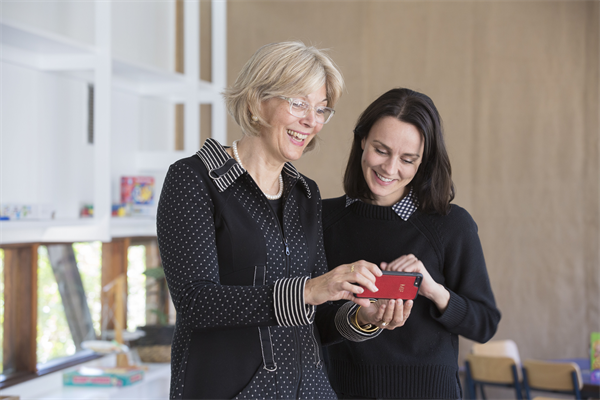When STEMM becomes a game, science becomes accessible

The complicated challenges and concepts of explaining evolutionary biology and other scientific concepts to children and young people propelled University of New South Wales Sydney Associate Professor Michael Kausmovic to turn gaming technologies into games to help children experience what it’s like to think and behave like practising scientists.
The work of Associate Professor Kasumovic is likely to be of interest to the early childhood education and care (ECEC) sector, for those working with children who have an interest in science, technology, engineering, mathematics and medicine (STEMM) and wish to understand the deeper context of their learning, or for those working with children who are in the gifted range of development, and who are seeking further learning in this domain.
Associate Professor Kasumovic’s work sits alongside the work of Dr Marylin Fleer, who is investigating the conceptual playworld concept, meaningfully integrating science, technology, engineering and mathematics concepts into the early years.
Speaking about the motivations for his work, Associate Professor Kasumovic said children are more likely to excel in STEMM domains when they see themselves enjoying thinking through scientific problems, prompting him to found start-up tech company, Arludo.
“To make STEMM more accessible, we need to do more than simply tell children what we’ve already discovered – we need to help them discover it for themselves.”
Recognising the need to boost essential STEMM skills through a practice-based, discovery-driven model, Associate Professor Kasumovic created Arludo to develop a library of apps that turn smartphones into science equipment.
He has developed 25 games that teach biology, psychology, chemistry, math and ethics, allowing children to experience science through different stories and problems, and learn more about what most interests them.
Games range from those that help children better understand the geological forces that formed rocks at Coogee, classic psychology experiments that can be done in under five minutes, and those that use augmented reality birds to teach children about mate choice and evolution.
“By making these games social experiences, it helps educators bridge the gap between traditional teaching and practice or mastery-based learning.”
Many of the games have a sub focus of speeding up data collection, a crucial skill for scientific research. Experiments can be done in ten to 15 minutes, and educators can work with children after the experiment to interpret and discuss results once the game is completed.
Associate Professor Kasumovic said that through engaging in the games, children are “able to learn the skills necessary in becoming data literate – a trait that has increasing importance as we continually collect and rely on data to make decisions.”
“Now we are looking to take the technology to regional and rural spaces, to make hands-on science accessible through YouTube Live. We’ll interview scientists in real time and children can text in comments as the interview progresses.”
The interviewed scientist will then play an Arludo game while children viewing the live YouTube stream do the same.
“We can then discuss the results the children collected together with the scientists. By using YouTube, a popular medium that educators and children are used to, we can bridge the gap between students and scientists anywhere in the world.
“If we want to improve STEMM engagement and we want children to love and appreciate science, then we need to meet children where they hang out most. And that involves using technology to make students active participants in their science experience,” Associate Professor Kasumovic said.
Popular

Workforce
Quality
Practice
Provider
Sustaining the spark: How early childhood leaders and educators can avoid burnout
2026-01-12 08:00:31
by Fiona Alston

Economics
Provider
Research
Workforce
Australia’s population outlook: What it means for the early childhood sector
2026-01-13 08:00:47
by Fiona Alston

Workforce
Securing the future: What the NSW community services jobs compact means for early childhood education
2026-01-13 07:15:46
by Fiona Alston














